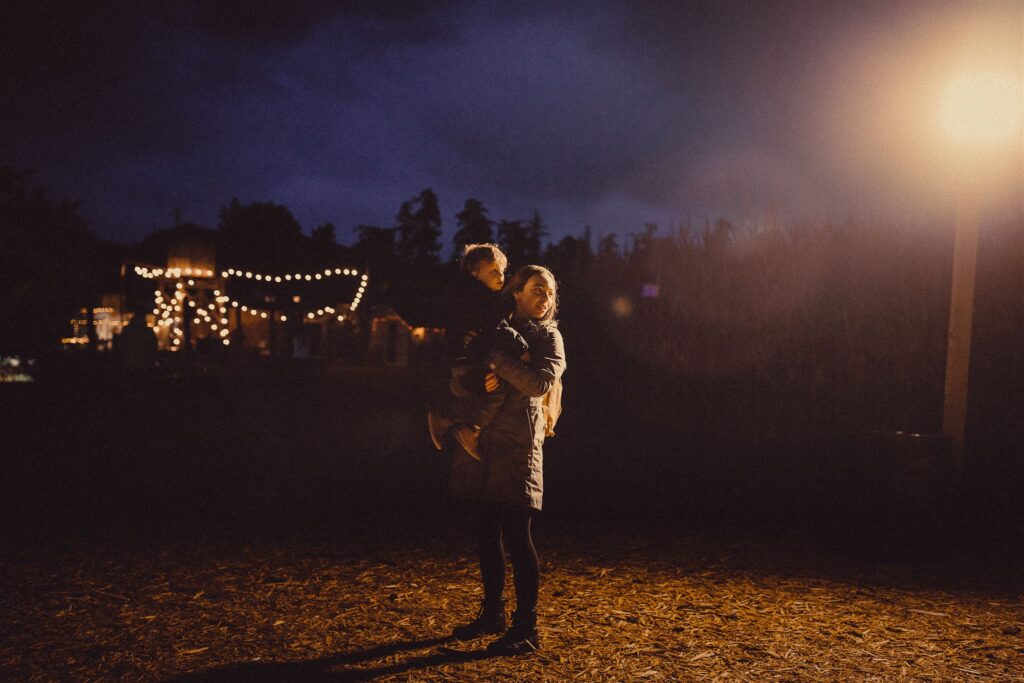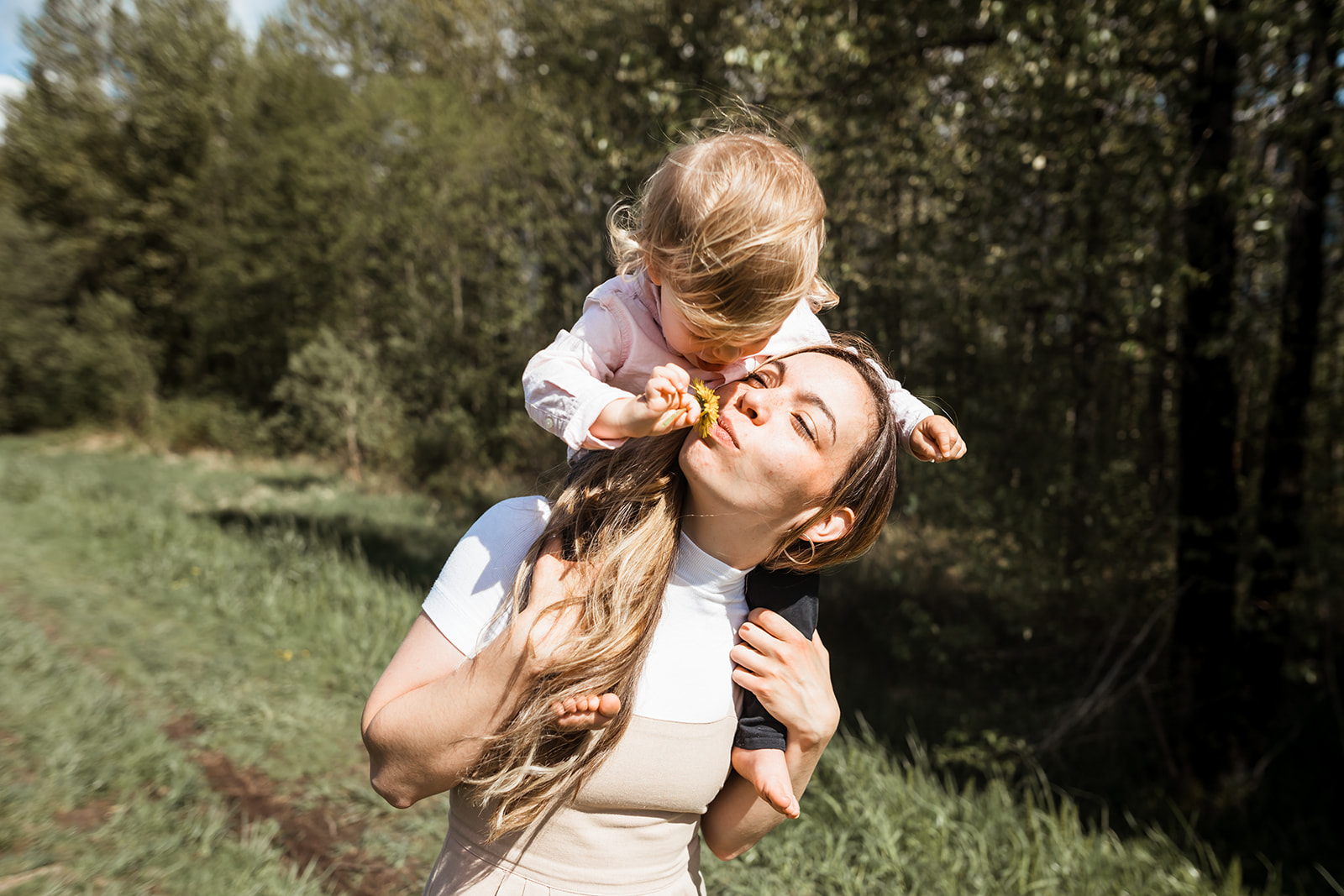While the world seems to be engulfed in both metaphorical and literal flames, more and more people are questioning whether or not having kids is a good idea.
Likely, if you already have children, you are now tasked with nurturing, and falling in love with a human who will undoubtedly inherit a challenging world. And if you don’t, you are questioning the whether or not to bring more people into this collective experience of disaster and chaos.
Some even go so far as to say that having kids is irresponsible at this point. This idea has spawned an out-right anti-natalist movement that claims to reduce human suffering, we must stop having children.
Adding to our shared anxiety is the systemic pressure for women to forgo parenthood in order to have traditional, career-focused success — courtesy of a decades-long western feminist ideal. It’s hard not to question if within this narrow (and capitalist/patriarchal) approach to liberating women we haven’t also inadvertently (or advertently) marginalized children in our visions of new worlds.
To quote Indigenous icon Buffy Sainte-Marie: “By looking at the questions the kids are asking, we learn the scope of what needs to be done.”
While acknowledging that not everyone will experience parenthood — perhaps from no desire to have kids or because of very real barriers — I still have to wonder: what does the exclusion of children from our plans and dreams of the future mean for the worlds we are dreaming of?
The adults in this conversation take up a lot of air space. Throughout all this, we are having kids. I did. My friends did, and continue to. And, our kids are listening to us and the message they are hearing is: you won’t have a world to grow up in.
So, what do our kids think of all this?
A lot of them are pissed off—and rightfully so. They are bringing their frustrations right to us, demanding that we address the catastrophes we continue to perpetuate, and we somehow still can’t hear them. A lot of kids are apathetic about the future — and this is something we (as parents and adults) have to listen to. We’ve painted such a bleak picture of the future that kids are feeling hopeless. When our children lose hope in their dreams, that’s when I worry about the kinds of worlds we are building. Like Tinkerbell, without childhood wonder and belief the lights go out.
Within parenthood, we have to actively deconstruct our own patterns of adult supremacy—but how do we do this? This list is a launch pad for those who are wondering how to start to disentangle from the status quo of undervaluing and disempowering children.

According to author/editor, and smasher of adult supremacy, carla bergman, the revolution we need starts within the intimate spaces of our homes. If you have a kid, actively build a home for your kid to grow up in that centres trust, care and listening. Give them the tools — and space — to question, explore, and create who they want to be and to discover their own perspective on the world.
Giving children space to discover the possibilities of who they are and who they are in relationship to the world can be done in harmony by showing up for them and trusting them. And by example, be sure that you are striving to be in a good relationship with the people and more-than-human kin all around you. Showing kids that they, too, are an integral part of the world and hold responsibility for it. This can give a sense of belonging and responsibility within themselves and for and with their community.
Secondly, seeing parenthood as strictly the relationship between yourself and your child has to shift. A diverse multi-aged support network for our children is a key way we can offer them new perspectives and give them more access to discover who they want to be. For adults, this can look like showing up for the kids in your life, even if they’re not your kids. Solidarity between parents is great, but it’s important to build real relationships with the children of your siblings and friends. Ask them questions about themselves, take a real whole-hearted interest in what they’re interested in. Show them attention and trust and that intergenerational friendships are possible and that you love them and value them for who they are today.
Thirdly, hold on to your own hopes and dreams. We have to model for the kids that we see a world for them that not only includes them, but includes their dreams; a place that is open and expansive to not only accept, but celebrate, all their ways of identifying and being in relationship to the world around them.
The world may be burning, but through the thousands of years of colonization, many worlds have burned and survived—even thrived. The heart of a culture lives within their children. Colonizers have always known that, just look at Canada’s use of Residential Schools as a tool of genocide against Indigenous Peoples here. Resistance to the oppression of children will always be rooted in Indigenous resistance and ways of being — a way of being in a relationship that centres children and the land now and into the future.
Some may scoff at the dreams of children, seeing them as underdeveloped ideas of the realities of the real world. But, maybe take a moment and remember one of your childhood dreams, I bet it’s not that far off from the dreams you still have.
I will continue to resist the systems that are harming us and our worlds and I will keep learning from voices like Noleca Radway, Andrea Landry, Leanne Betasamosake Simpson, Akilah Richards, and more — but my hopes for a thriving world still lay within the dreams of our children, and I will keep my hopes there where they are safest.




